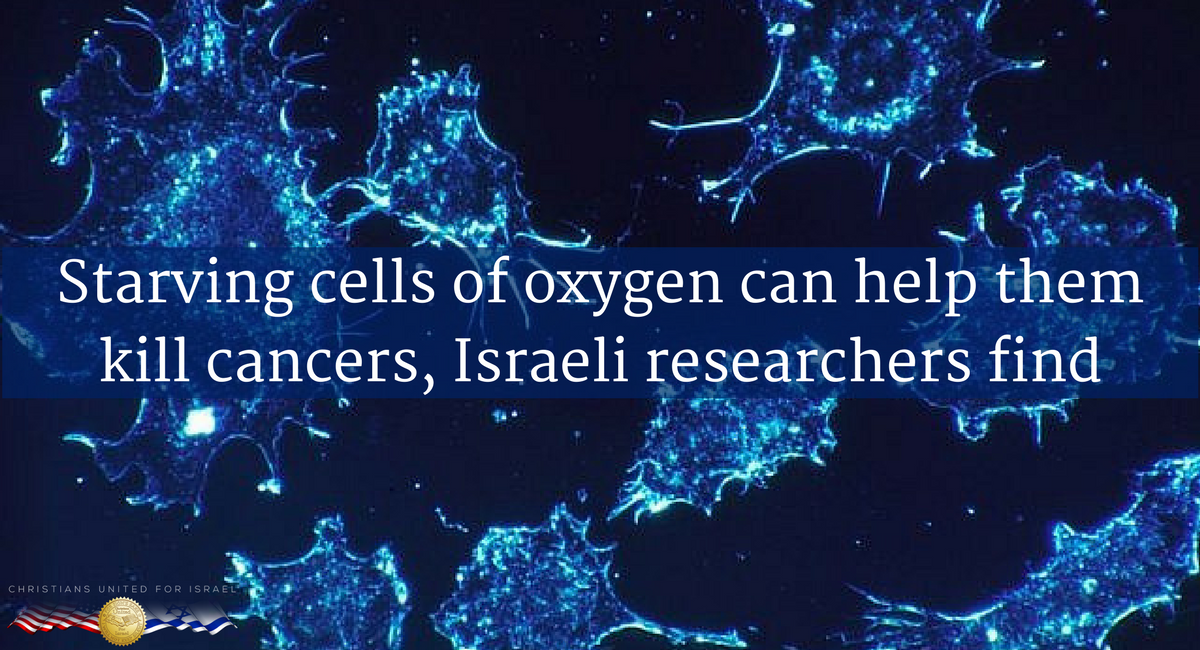Starving cells of oxygen can help them kill cancers, Israeli researchers find

Researchers at Israel’s Weizmann Institute of Science have developed a method to reinforce the power of cells that kill cancerous tumors by starving them of oxygen, allowing immunotherapy treatments to be used in targeting previously immune solid tumors.
The research was published in the journal Cell Reports. In the article, the researchers liken the new, toughened cells to athletes who train in high altitudes, where the percentage of oxygen in the air is lower.
The technique is based on removing cytotoxic T lymphocytes (CTLs) from the body and then breeding them in a lab, after which they are reintroduced into a patient’s blood stream. The CTLs, known also as killer T cells, are cells in charge of destroying damaged cells, cancer cells, and cells infected with viruses or other pathogens.
Quoted on Wednesday by Medical News Today, senior Weizmann Institute researcher Guy Shakhar compared the oxygen-starved killer T cells to mountaineers who gradually get used to lower oxygen levels. “Just as altitude training increases endurance in humans, so putting killer T cells through a ‘fitness regimen’ apparently toughens them up,” he explained.
“Killer T cells are the foot soldiers of cancer immunotherapy, they are the ones to target and destroy cancerous cells, but they don’t always manage to eliminate the malignancy,” Shakhar said. “We’ve shown that by growing these T cells in an oxygen-poor environment, we can turn them into more effective killers.”
When tackling solid tumors, the method has so far proven ineffective, since these tumors typically have a very low percentage of oxygen – about 5 percent – far lower than the conditions under which the T cells are grown in labs (typically 20%).
An experiment by Shakhar’s and his team has shown the low-oxygen T-cells, or hypoxic CTLs, to have a higher success rate in controlling tumors introduced in laboratory mice. A control group included mice not injected with any T cells.
Read More: Times of Israel
